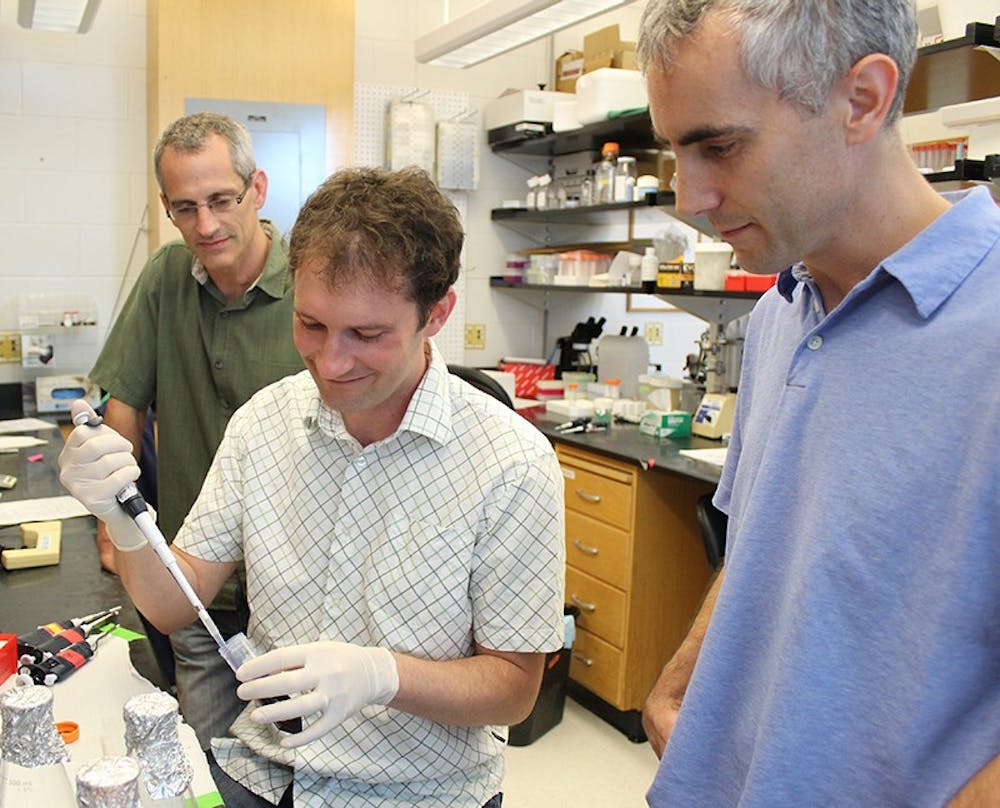Scientists from UNC’s School of Medicine have discovered a link between autism and environmental factors — and it all started over a longstanding lunch date.
Mark Zylka and Ben Philpot, researchers in the Department of Cell Biology and Physiology, said their research began as a collaborative effort about three years ago after one of their many mealtime conversations.
Philpot convinced Zylka to join his work on Angelman syndrome, a rare neurogenetic disorder.
Nature, an international journal of science, published the work of Philpot, Zylka and their team of researchers in its Thursday issue. The paper details the team’s work about a potential environmental cause of autism.
“Nature is kind of the pinnacle of journals we can publish in, and to have that kind of exposure, it will only bring better people to UNC, both graduate students and postdocs,” Philpot said.
UNC ranked second internationally among institutions publishing autism research in 2010, trailing only Harvard, Zylka said.
Ian King, a postdoctoral student in the School of Medicine, said the team stumbled upon the discovery when they tested the potential for topotecan to relieve the symptoms of Angelman syndrome.
Zylka said topotecan, a drug often used in chemotherapy, can be utilized to inhibit topoisomerase, an enzyme, which in turn limits the expression of certain genes.
The genes limited by topotecan were particularly long, a characteristic shared by genes linked to autism.




